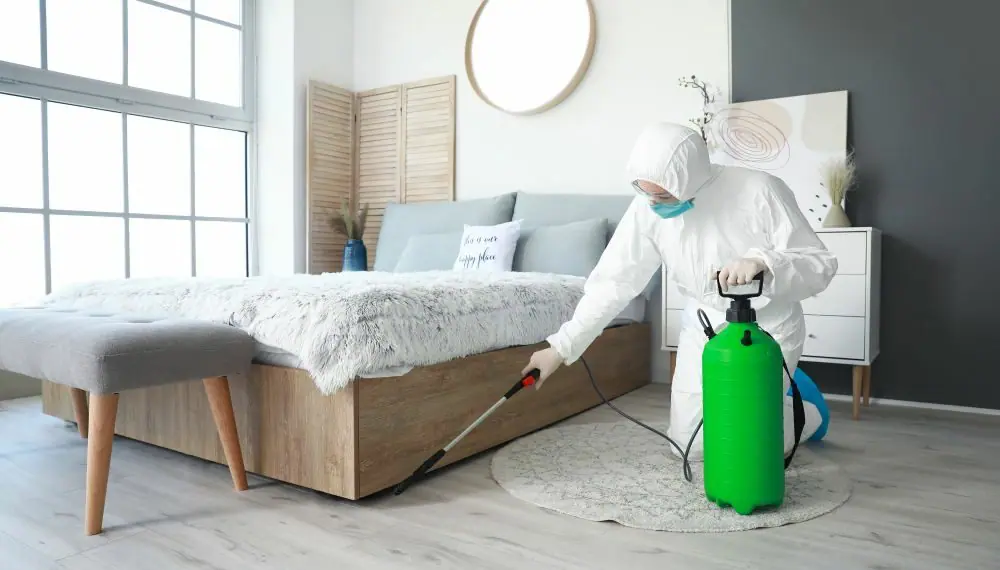In the bustling world of hospitality, ensuring a clean, safe environment is paramount. The introduction of Artificial Intelligence (AI) has revolutionized many sectors, and the hotel industry is no exception. One significant area where AI is making a substantial impact is in pest monitoring. As hotels strive to maintain their reputation and provide top-notch service, understanding how AI improves hotel pest monitoring becomes crucial.

The Need for Advanced Pest Monitoring
Pests in hotels are more than just a nuisance; they pose serious health risks and can damage a hotel's reputation. Traditional pest control methods often involve routine inspections and the use of chemicals, which can sometimes be ineffective and environmentally harmful. With the advent of AI, hotels now have access to cutting-edge technology that offers a smarter approach to pest management.
AI-Powered Sensors and Cameras
AI technology uses sensors and cameras equipped with machine learning algorithms to detect pest activity in real time. These devices can be strategically placed around the hotel premises to monitor areas prone to infestations. When a pest is detected, the system alerts hotel staff immediately, allowing for prompt action. This proactive approach not only prevents infestations but also reduces the need for chemical interventions.
Data Analysis and Predictive Insights
One of the standout features of AI in pest monitoring is its ability to analyze vast amounts of data to predict pest behavior. By examining patterns and trends, AI systems can forecast potential pest issues before they become a problem. This predictive capability allows hotels to implement preventive measures, ensuring a pest-free environment for guests. For more insights, you can explore how technology impacts pest control in hotels.
Reducing Environmental Impact
Traditional pest control methods often rely heavily on chemicals, which can be harmful to both the environment and human health. AI-driven pest monitoring systems minimize the need for these chemicals by offering precise, targeted interventions. This environmentally friendly approach aligns well with the growing trend of sustainable tourism and eco-friendly hotel management.
Enhancing Guest Experience
The primary goal of any hotel is to provide a comfortable and enjoyable experience for its guests. A pest-free environment is crucial to achieving this goal. By employing AI-powered pest monitoring, hotels can ensure that their premises remain clean and safe, thereby enhancing the overall guest experience. This technological advancement also reassures guests of the hotel's commitment to their health and safety.
Integration with Existing Systems
AI pest monitoring systems can be seamlessly integrated with existing hotel management systems. This integration enables hotel staff to receive real-time updates and alerts through their current platforms, streamlining operations and improving efficiency. Such integration ensures that staff can quickly address any issues, maintaining the hotel's high standards of cleanliness and safety.
Cost-Effectiveness and Efficiency
Implementing AI-driven pest monitoring systems may require an initial investment, but the long-term benefits far outweigh the costs. By preventing infestations and reducing the need for chemical treatments, hotels can save significantly on pest control expenses. Additionally, the efficiency of AI systems in detecting and addressing pest issues reduces the workload on staff, allowing them to focus on other important tasks.
Challenges and Considerations
While AI offers numerous benefits, hotels must consider certain challenges when implementing these systems. Initial setup costs and the need for staff training can be potential hurdles. However, with the rapid advancement of technology and decreasing costs, AI solutions are becoming more accessible to hotels of all sizes.
The Future of Pest Monitoring in Hotels
As technology continues to evolve, the future of pest monitoring in hotels looks promising. AI will likely become an integral part of hotel management, offering even more sophisticated solutions for maintaining a pest-free environment. Embracing these innovations will be key for hotels aiming to stay competitive in the ever-evolving hospitality industry.
Conclusion
Understanding how AI improves hotel pest monitoring is essential for modern hotel management. By leveraging AI technology, hotels can provide a safer, more pleasant experience for their guests while also contributing to environmental sustainability. As AI continues to develop, the opportunities for enhancing hotel operations and guest satisfaction will only grow.

FAQs
How does AI detect pests in hotels?
AI systems use sensors and cameras with machine learning algorithms to detect pests in real time. These devices can identify specific types of pests and alert hotel staff for immediate action.
Is AI-based pest monitoring cost-effective?
Yes, while there is an initial investment, AI-based systems reduce the need for frequent chemical treatments and lower the risk of infestations, leading to long-term cost savings.
Can AI systems integrate with existing hotel management platforms?
Absolutely. AI pest monitoring systems can be integrated with current hotel management systems, providing real-time updates and alerts to streamline operations.
